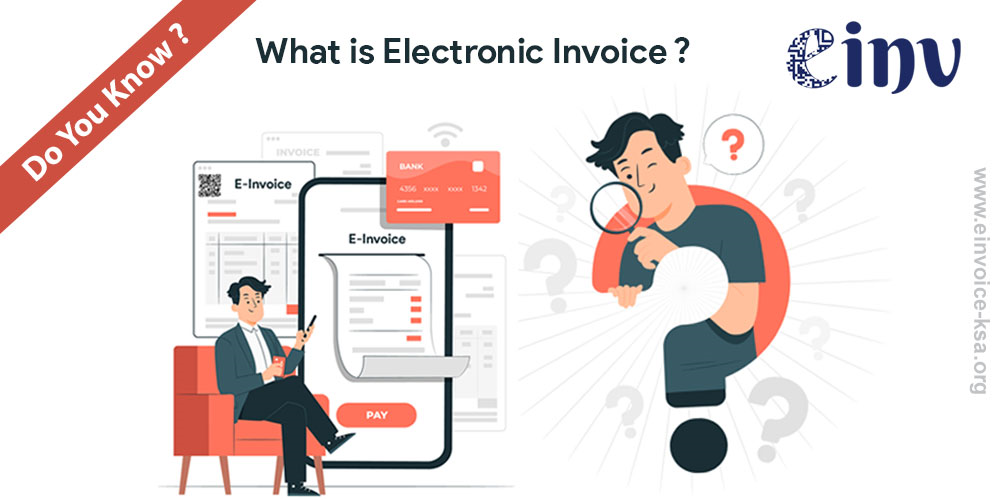
What is Electronic Invoice?
An e-invoice, or electronic invoice, is a digital document that is exchanged between a supplier and buyer and validated by the government tax portal.
A tax invoice that is generated in a structured electronic format through electronic means. A paper invoice that converted into an electronic format through coping, scanning, or any other method is not considered an electronic invoice.
What is E-Invoicing (FATOORAH)?
Electronic invoicing is a procedure that aims to convert the issuing of paper invoices and notes into an electronic process that allows the exchange and processing of invoices, credit notes & debit notes in a structure electronic format between buyer and seller through an integrated electronic solution.
E-invoicing (FATOORA) applies to all per- sons subject to VAT and any other parties issuing tax invoices on behalf of suppliers subject to VAT. Non-resident taxable persons for VAT purposes are excluded.
How does E-Invoicing (FATOORAH) work?
E-Invoicing will be rolled-out in two phases in KSA.
For the first phase, enforced as of December 4th, 2021, for all taxpayers (excluding non-resident taxpayers), and any other parties issuing tax invoices on behalf of suppliers subject to VAT, electronic invoice issuance will be very similar to invoices generated prior to 4 Dec 2021, with invoices issued through a compliant electronic solution and including additional fields depending on the type of the transaction.
For the second phase, enforceable starting January 1st, 2023 in waves, the electronic solution must be integrated with ZATCA's systems and e-invoices should be generated in the required format.
Benefits of E-Invoicing:
Electronic Invoicing has several benefits for both persons subject to E-Invoicing
Regulations and national economy, these benefits include but are not limited to:
- Reduces cost of invoicing process.
- Prevents human error in invoicing process.
- Enhances digitalization in supply chain.
- Improves accounting and bookkeeping.
- Enhances business ecosystem with enriched fair competition and consumer protection through provision of a unified process for validating and auditing invoices.
- Reduces hidden economy transactions.
- Reduces commercial concealment by increasing requirements related to invoice.
- tracking and data retention
- Enriches the consumer experience and digitizing the consumer- supplier relationship.
- Increases compliance with tax obligations through enhanced verification of business transactions.
Types of E-invoices.
1. Standards Tax Invoice: An invoice that is usually issued by a Business to another Business (B2B), containing all tax invoice elements.
- Standard Credit Note Invoice: A document issued by a seller to a buyer reducing the buyer's liability due to returned goods, discounts, or other adjustments.
- Standard Debit Note Invoice: A document issued by a seller to a buyer increasing the buyer's liability due to undercharging, additional fees, or corrections.
2. Simplified Tax Invoice: An invoice that is usually issued by a Business to consumer (B2C) containing all simplified tax invoice elements.
- Simplified Credit Note Invoice: A credit note with limited data used for smaller value transactions, highlighting the reason for credit but with fewer details.
- Simplified Debit Note Invoice: A debit note with limited data used for smaller value transactions, highlighting the reason for charging but with fewer details.
Request A Call Back
We will try and understand your system architecture & discuss details of what it will take for you to get 100% compliant.














